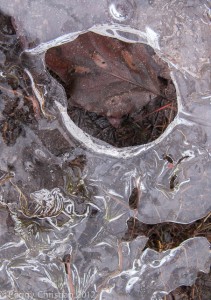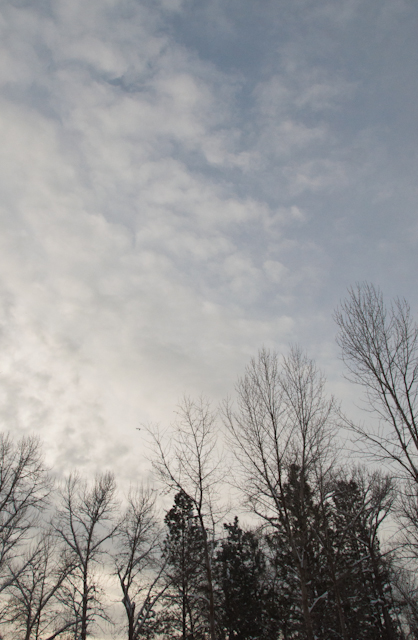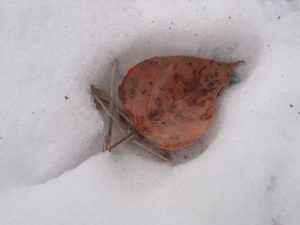 A friend asked me today, “Why a nature blog? You are neither a scientist nor a professional environmentalist. Why write about nature when there are already so many outstanding nature writers out there?” And I had to pause for a moment and really consider her question. Because it begs deeper reflection. Why write at all? In a world overflowing with at-your-fingertips information on any subject imaginable, why write about your own individual experiences, ideas and ruminations? The blogosphere is already crowded with thousands of people chronicling everything in their lives from their adventures in travel and in the kitchen to the wonders of the landscapes they live in. And in the face of climate change, fracking, species extinction, overpopulation, urban sprawl, etc.,etc.,etc. is it enough to simply satisfy my human need to, as Dinty Moore says, “not just live year to year but to capture a bit of that life, to produce an enduring record of our better thoughts?” In the face of global crises it does seem self-indulgent and rather ineffectual to write about my own small piece of Montana and what I experience there.
A friend asked me today, “Why a nature blog? You are neither a scientist nor a professional environmentalist. Why write about nature when there are already so many outstanding nature writers out there?” And I had to pause for a moment and really consider her question. Because it begs deeper reflection. Why write at all? In a world overflowing with at-your-fingertips information on any subject imaginable, why write about your own individual experiences, ideas and ruminations? The blogosphere is already crowded with thousands of people chronicling everything in their lives from their adventures in travel and in the kitchen to the wonders of the landscapes they live in. And in the face of climate change, fracking, species extinction, overpopulation, urban sprawl, etc.,etc.,etc. is it enough to simply satisfy my human need to, as Dinty Moore says, “not just live year to year but to capture a bit of that life, to produce an enduring record of our better thoughts?” In the face of global crises it does seem self-indulgent and rather ineffectual to write about my own small piece of Montana and what I experience there.
But then I recently happened to pick up The Abstract Wild by Jack Turner and in this wildly provocative book (pun intended) he suggested a possible answer. He has a chapter on how the economists and economic language have co-opted our thinking about everything–turning the natural world and all living things into commodities and requiring everything and even everyone to be reduced to commensurate units, with money being the value of these units.
Being a linguist, I know how the language we use shapes our worldview, and I was intrigued by his argument that, “If we find we live in a moral vacuum, and if we believe this is due in part to economic language, then we are obligated to create alternatives to economic language…Enmerson started the tradition by dumping his Unitarian vocabulary and writing “Nature” in language that restored nature’s sacredness. Thoreau altered that vocabulary further and captured our imagination. The process continues with the labor of poets, deep ecologists, and naturalists.”
Perhaps the more blogs that work to restore the sacredness of nature, that explore our inter-relatedness and interdependence by giving us a new language and a new way of thinking, the more our consciousness will change.
As for what value a singe person’s voice has, I think back to my morning walk. I had started the morning by reading Rick Bass’s The Wild Marsh and in the chapter on February he talks about the way the “wonderful bare ground” first appears at the base of the largest trees and how the darkened trunks of those trees absorb the sunlight during the day. “The absorbed heat in those blackened trunks radiates slowly back out across the snow, warmest on the west side, which is the part of the tree trunk that received the last and most intense heat of the day.”
Trudging through the tired snow, not only was I delighted to notice he was right, the bare earth was showing on the west side of the ponderosas, but then I began to notice as well that the cottonwood leaves sitting on top of the crust had begun to melt down, embossing the snow with leaf prints. And in the pond the pine needles and leaves had melted their way through the ice, cutting it into a delicate filigree The same principle had to be at work here. It was that little thrill of discovery, of extending what I’d learned from reading Bass’s experience and finding my own example. I have walked these winter woods for decades and never taken particular notice of this phenomena. But now I see it everywhere. And so perhaps, something you read in this blog will lead you to your own epiphany.
Books I Love: The Abstract Wild by Jack Turner and The Wild Marsh by Rick Bass
Like this:
Like Loading...



